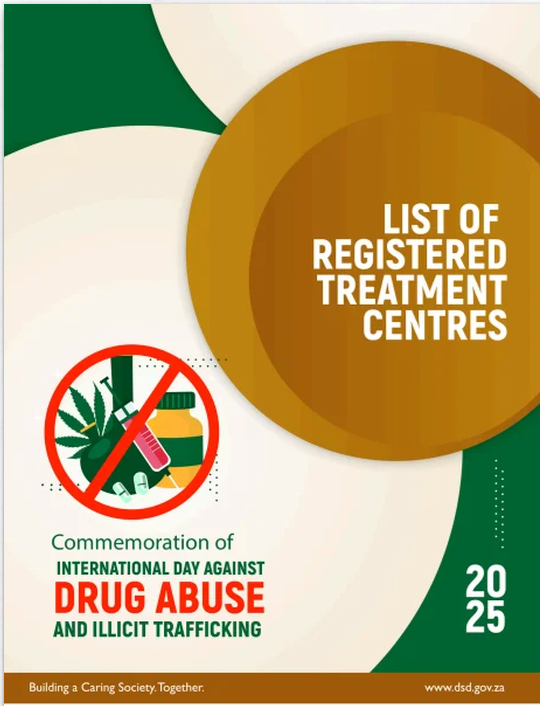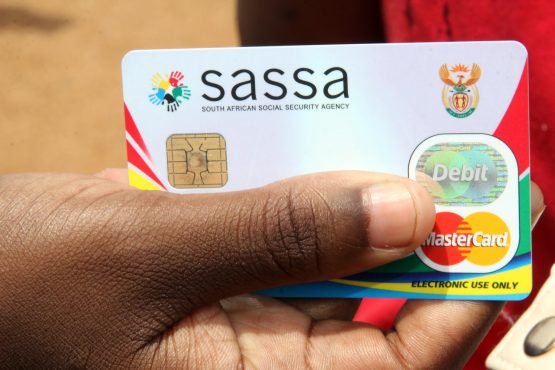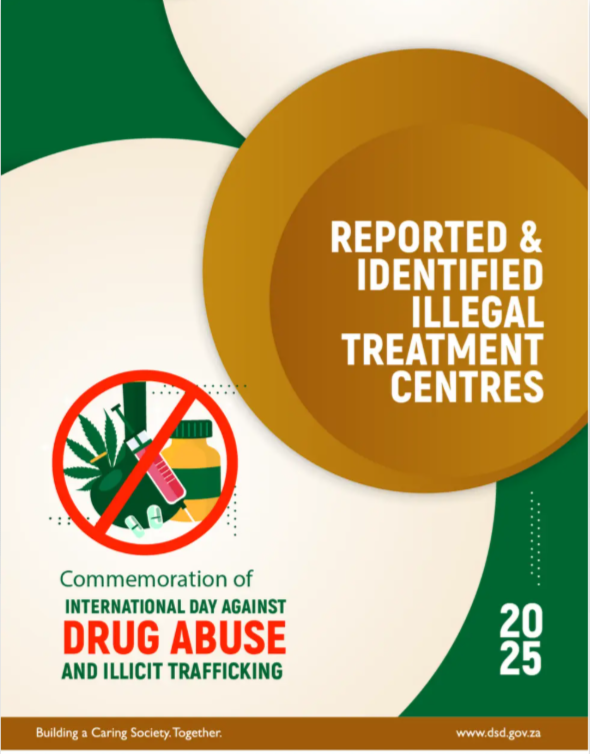Pretoria, 26 June 2024: As the world commemorates International Day Against Drug Abuse and Illicit Trafficking, the department of social development is concerned about alcohol as the first drug of choice by young people.
International Day against Drug Abuse and Illicit trafficking is observed annually on the 26th of June. This day which is commonly referred to as World drug Day was established by the United Nations General Assembly in 1987 with the aim of strengthening action and cooperation to achieve the goal of an international society free of drug abuse.
The significance of World Drug Day 2024 lies in its ability to raise awareness about the severe consequences of drug abuse and illicit trafficking. Drugs not only destroy lives but also disrupts communities, fuel crime, and weaken economies. According to the United Nations Office on Drugs and Crime (UNODC), around 269 million people worldwide used drugs in 2018, and these numbers continue to rise. The world drug day highlights the global commitment needed to address drug abuse and illicit trafficking through education, support, and rehabilitation.
The day underscores the necessity of international cooperation as drug trafficking is a trans-national challenge that requires a coordinated response from governments, organisations, and individuals.
The theme for World Drug Day 2024 is: “The evidence is clear: invest in prevention”. The theme teaches countries the importance of understanding that effective drug policies need to be grounded in science, research, compassion, and full respect for human rights. The day also emphasize a thorough comprehension of the social, economic, and health consequences of drug use.
World Drug Day 2024 also emphasises the importance of ending stigma and strengthening prevention efforts to combat drug abuse and illicit trafficking. By uniting globally and prioritizing compassion and education, significant strides toward a drug-free world can be achieved.
Individuals can contribute to the commemoration of this day by spreading awareness, supporting local prevention and rehabilitation programs, participating in community events, and advocating for policies that address drug abuse and trafficking.
The 2024 Commemoration was preceded by a National Anti-Drug Awareness week which commenced from 18-22 June 2024. During that week, it was critical for the department to lead various activities in all provinces to highlight the harmful use, abuse, misuse of alcohol and drugs.
On the 18th of June 2024, the department engaged with community members from Scenery Park, East London, which is grappling with a high rate of substance abuse, especially amongst the youth. The engagement coincided with the remembrance of the tragic deaths of 21 teenagers at Enyobeni Tavern two years ago, highlighting the ongoing challenge of drug abuse and community efforts to address the scourge.
Identifying the high rates of alcohol abuse in the area led to the formation of Lion Trackers, a women’s football team, aimed at diverting young people from alcohol and drug abuse. Seventeen-year-old Sombesiwe Vakela, a representative for young people and a striker for the Lion Trackers, emphasised that winning the fight against substance abuse required assistance from the community. She highlighted how activities like sports can keep young people away from alcohol and drugs. Parents were also urged to play an important role in ensuring that children were protected against the use, misuse and abuse of alcohol and drugs.
The Department in partnership with the Eastern Cape Liquor Board and SAPS engaged with Liquor traders at Ndavana Community with the aim of raising awareness about the harmful use, abuse, and misuse of alcohol and drugs and the importance of responsible trading. The Eastern Cape Liquor Board’s, Ms Bongi Bozo, explained the detailed process involved when verifying applications for a liquor license and the powers of the board to not only fine but arrest irresponsible traders selling alcohol to children younger than 18 and serving alcohol to pregnant women. Ms Bozo appealed to liquor traders to comply with the trading guidelines.
One positive recommendation from the engagements was the need for initiating a forum led by the Liquor Board to regularly engage traders and the community on pressing matters such as illegal shebeens that are mushrooming uncontrollably. The crime rate associated with substance abuse, and the selling of drugs and other harmful substances outside some taverns.
The department also engaged the community of Nxarhuni which included children, youth, parents and community leaders. Opening the engagement was a 12-year-old child with a powerful inspirational poem urging the youth to fight for their future by staying away from the use of harmful substances and criminal activities. Young people at these build-up activities cited boredom, peer pressure and easy access to drugs and alcohol as some of the major challenges present in their community. They asked parents to actively support initiatives that educate everyone about the risks associated with substance abuse, advocating for a proactive approach to community wellness.
Ms Motshabi Nkoane, the Social Work Policy Manager, at the National Department of Social Development, raised a concern on the high level of alcohol abuse in South Africa, especially, amongst young people which includes binge drinking. She echoed that substance abuse is not a Department of Social Development issue alone, and therefore all relevant stakeholders, including, Councillors, Traditional Leadership and Communities should be involved to fight the scourge of substance abuse as stipulated in the National Drug Master Plan, which is the overarching blueprint of the country’s response to substance abuse.
The department is concerned that alcohol remains the first drug of choice for young people and the policy of Prevention and treatment of Substance Use Disorders (SUD) will be finalised for tabling to cabinet for approval. The policy seeks to empower the country to deal with the abuse of alcohol especially by children and replace effective policies with evidence-based policies. Finally, the International Day against Drug Abuse and illicit trafficking coincides with the international conference at currently underway in Thessaloniki, Greece by the Global Commission on drug policy for credentialing and certification. South Africa is a member of the commission and its participation is to align the country interventions with international standards and certify practitioners to provide substance use services.
ISSUED BY THE NATIONAL DEPARTMENT OF SOCIAL DEVELOPMENT
Media enquiries may be forwarded to Ms Lumka Oliphant on 083 484 8067 or This email address is being protected from spambots. You need JavaScript enabled to view it.





